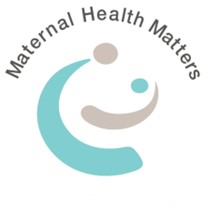Kindness an essential part of maternity care

Kindness is a difficult attribute to define, but not to illustrate. Each of us, if asked, could tell personal stories about when we have been treated kindly and when we have been treated unkindly. We know it when we experience it, and we recognize when it isn’t there.
Kindness is an essential virtue in a positive pregnancy and birth experience. When kindness is experienced in maternity care, women feel more care, consideration, and understanding. Kindness contributes to an overall feeling of goodwill and positivity
“Women consistently report that being treated and spoken to with kindness and respect is at the heart of a positive birth experience” Milli Hill Page 189
Four ways kindness makes a difference
1. Kindness accepts. We may not be able to control nature, but we can control how we treat women in labour and birth.
2. Kindness encourages. In maternity care, health professionals must realize what power they have to hurt a patient or to support. A cutting remarks from a health professional will go deeper than any knife. A kind word will encourage a woman at her lowest ebb.
3. Kindness serves. Kindness can clearly be seen in the selfless service offered to a patient. In order for kindness to be a service, we need to be in tune with both yourself and your patient.
4. Kindness sustains. When practiced on a daily basis, kindness becomes a habit. And when kindness becomes so ingrained in everything we do, it has the power to sustain.
What Does Kindness Mean in Maternity Care?
- Kindness means being generous, thoughtful, caring, compassionate and supportive to the pregnant woman.
- Kindness means making meaningful connections with women through recognising their needs.
- Kindness does not mean being weak.
- Kindness is an understanding of each woman’s needs and desiring to meet them, which is subsequently manifested in action through provision of unbiased information and emotional support.
- Kindness is thinking of your patient and prioritising maternal choice.
- Kindness is being honest but not brutally honest.
- Kindness doesn’t mean that we don’t express our concerns, but kindness informs how we choose to express the concern.
- Kindness is maintaining respect, particularly respect for bodily autonomy.
- Being Right or Being Kind? You may like to be right (we all do), but how does being right trump being kind to the woman in your care? It doesn’t. Usually, if you focus on being right, then that means your client has to be wrong. This scenario leads to a lose-lose situation.
What Happens When You Show Kindness?
The major key to a positive birth experience is dignity, respect and kindness. The emotional experience of maternity care stays with women for a lifetime.
According to research, the majority of birth trauma is not from the act of birth itself, but from how we are treated by those caring for us—who have power over us—during this vulnerable time. Trauma can be created when we feel unsafe, period, whether the threat is physical or psychological, real or perceived. Even in the worst-case scenario (especially in the worst-case scenario!), there’s no excuse for anything less than the utmost respect for, deference to, and compassion towards the birthing woman as she makes informed choices and decisions.
Ways To Show Kindness
When you learn ways to increase your level of kindness, you will improve outcomes for your clients.
- When you learn ways to increase your level of kindness, you will improve outcomes for your clients.
- Introduce yourself and tell the pregnant woman what you do.
- Ask “How are you?”
- Listen and validate your patient
- Ask” How can I help you?”
- Design care with the woman’s needs front of mind
- Be a health professional on tap not on top.
- Be caring and compassionate as well as the technical expert.
Kindness in words creates confidence, kindness in thinking creates profoundness, and kindness in feeling creates love (Lau Tzu).
